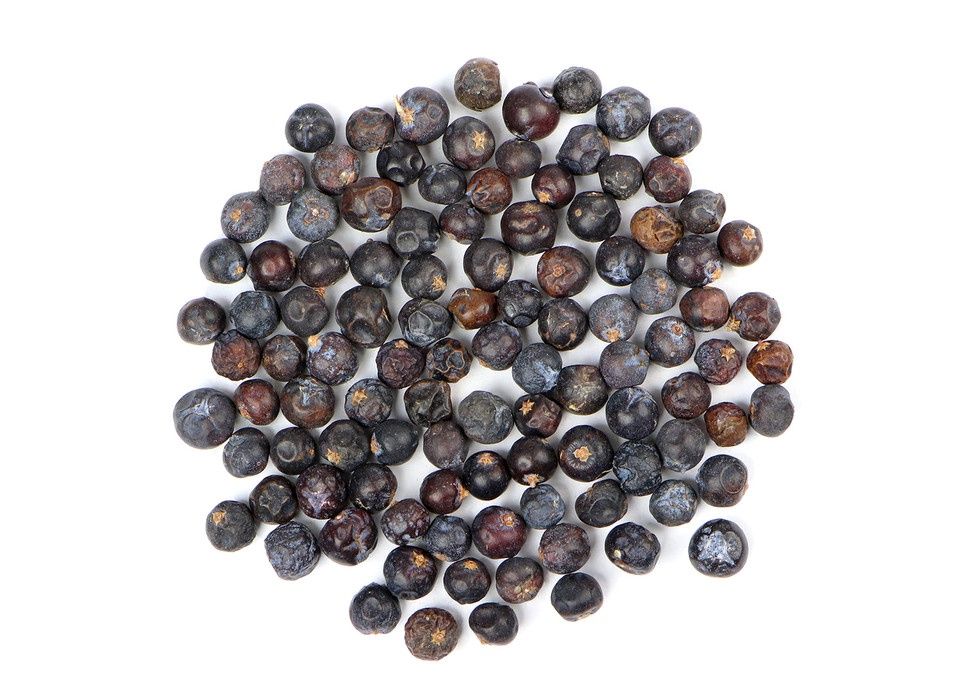Juniper Berries, Whole, Organic, 1 ounce
Juniperus communis is an evergreen tree native to cool, temperate parts of North America, Europe, and Asia. Juniper berries are regarded for their healthful properties and the wood for its usefulness in crafts. The purple-blueish berries are actually a fused seed cone and are harvested in early autumn. Juniper berry has a strong taste and has been added sparingly to culinary recipes. The berries have also been tinctured and added to liquors for their herbaceous flavor.
It is especially abundant in central Texas and Eastern Oregon. The history and folklore concerning the juniper tree is long reaching. The first recorded mention of use is in an Egyptian papyrus from 1500 B.C.E. Juniper was the symbol of the Canaanites fertility goddess Ashera. Western European folklore tells that is a juniper tree is planted by the door to your home, a witch cannot enter. Juniper incense has also been used by the Scottish to ward off the evil eye, and by the Tibetans to remove demons - in otherwords, for exorcism. Juniper belongs to the Cupressaceae plant family.
To prevent loss of essential oil, juniper berries should not be ground, crushed, or rubbed until just before use. They have been taken as a tea, extract or capsule. Today, the best-known use of juniper berries is as the main flavoring agent in gin.
Precautions
Not for use in pregnancy except under the supervision of a qualified healthcare practitioner. Use with caution in persons with inflammatory kidney disease. Not for use exceeding six weeks in succession. Processed in a facility that also produces tree nuts. Tree nut fragments may be occasionally present. We recommend that you consult with a qualified healthcare practitioner before using herbal products, particularly if you are pregnant, nursing, or on any medications.
This information has not been evaluated by the Food and Drug Administration. This product is not intended to diagnose, treat, cure, or prevent any disease. For educational purposes only.
